The concept of getting money in exchange for something of equivalent or greater value (principle of equivalent trade) started out during the early stages of modern man when mankind realized that every single thing has two primary uses; the first one being the purpose for it which it was designed or crafted, and the second is for its perceived value that can be used for trade, either through selling or through bartering.
[the_ad_placement id=”in-text-1-type-r”]Bartering is usually done when a person with extra stock of something that can be considered of value, like grains, domestic animals and fruits, approaches another person who has something else that has almost or equivalent value, say a cask of wine for a sack of grain.
The bartering system became the standard for trade and commerce until the introduction of the monetary system in or around Ancient Babylon. The concept of assigning value to an erstwhile insignificant object, like a piece of paper or a round piece of rock, arose from the need to have a common medium of trade across different societies.
Some societies back then placed a lower value on certain commodities which another society has placed a higher value basing on how they procured it. Confusion and discord are often the consequence when two parties don’t get to agree on a certain commodity’s perceived value that is why the monetary system was developed.
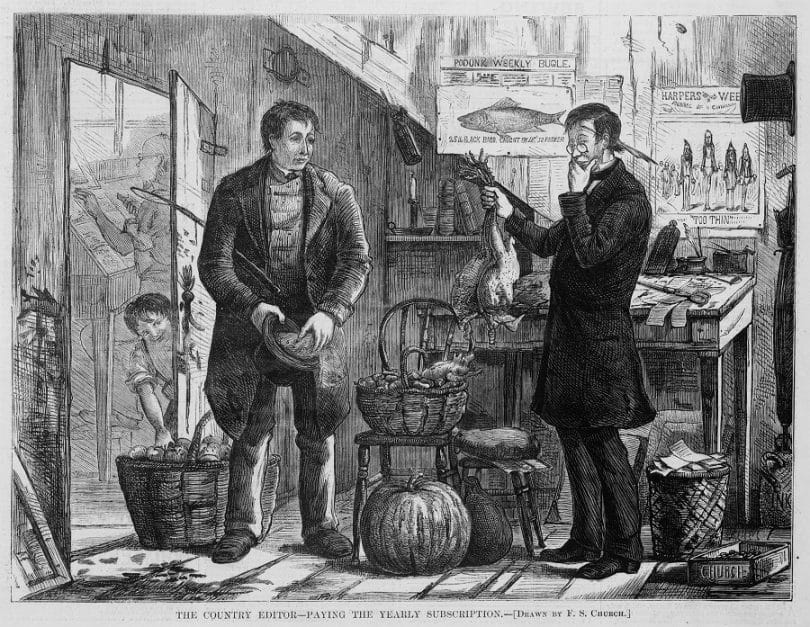
The first form of money was obsidian; a mineral often used in crafting tools, followed by shells, called cowries, and, eventually, came in the shape of small knives or coins taking the shape of cowry shells. These were made of bronze and were common during the Zhou dynasty but further archaeological evidence show that the manufacture of such coins was prevalent across other cultures having almost the same shape and size.
Eventually, gold and silver were introduced as materials for coins, with gold taking the higher value. Often, merchants who have amassed a sizeable stash of gold would have them melted and form into bricks for easy storage. Paper money was already prevalent in ancient Chinese culture but it wasn’t until the 19th century that it became the accepted as the standard form of payment.
Nowadays, in order for you to have something you really want; you must have an equivalent amount of money so you can procure it. But should it always be the case?
Living for free
Mankind’s basic needs in the 21st century include food, shelter, clothing, transport and communications. You can have all of these if you have the right amount of money but owning and having these should not be expensive, in fact some of these you can actually get for free. Free you say? Yes, free but not from stealing mind you. There is a trove of knowledge out there waiting for you to discover on how to live for free and listed here is a few them.
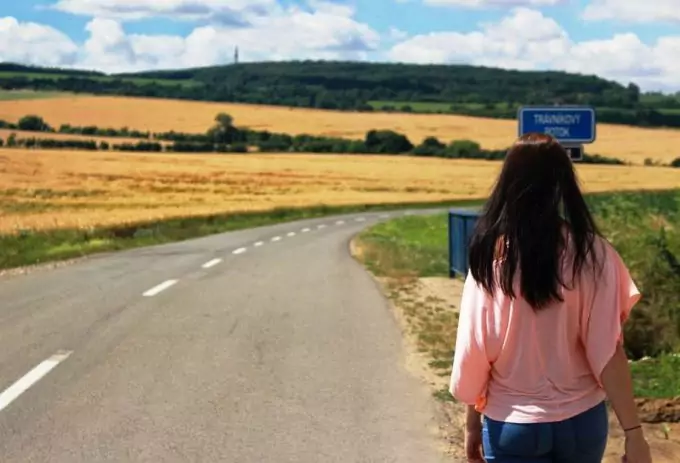
The information here comes from multiple sources and first-hand accounts of individuals who have lived “off-the-grid” for quite some time and have been successful at it. Detractors often ask them: “How do you eat?”, “How do you get by?”, etc. They either shrug them off and give one word responses or sit down with them and explain the mechanics of living for free.
They dole out information like this on a case to case basis as (1) they don’t want competition and (2) they don’t want the information to be passed along individuals who might seek to take measures and prevent them from living for free.
How to get food
There are several ways to get food for free and none of them involve dumpster diving. Basically, getting food for free is like going back to how our ancestors did it back in the day.
Forage – foraging is the act of gathering food from the wilderness or from plants going along side streets. This takes some time to master as identifying which plant or herb is edible is hard at the start but once you get the rhythm of knowing which one you can eat you’ll find that foraging becomes easier. Herbs are the easiest to forage as they grow almost anywhere, you just to have a simple guide with you so you can identify them by the shape of their leaf. To learn how to identify plants that you can eat, read our popular article on this topic for more information.
Next to herbs, you can forage for edible mushrooms and wild berries, depending on the season. Just remember that the best places to forage would be around forested areas or, if you’re on in an urban setting, around areas that have minimal or no pedestrian and vehicle traffic.
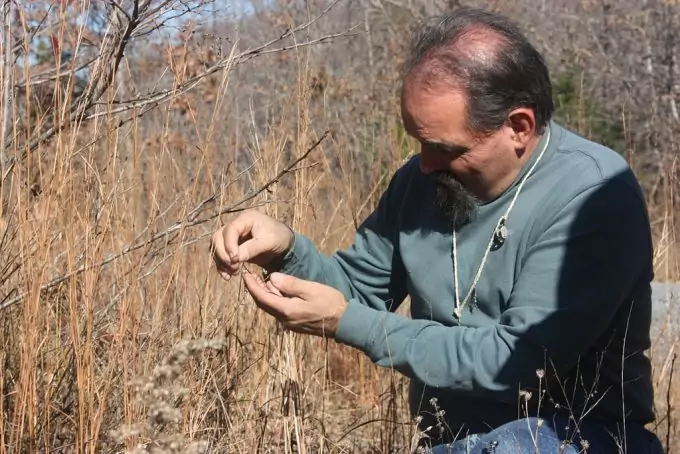
Keep away from paths that dog walkers usually take. The golden rule for foraging is to never take the whole plant, take only what you can eat in one seating or two and leave the rest so you can come back to the same plant some other day. Some foragers may have also “reserved” that plant for their own use so it’s better if you take only a small portion.
Grow them – even if you don’t have the space in your present living accommodations, you can always find a way to plant your own garden. You can start small by utilizing used cans or pots and place them in area that receives some sunshine, depending on the plant you are growing. Plants that are easy to maintain and require little work; you can, or should, choose plants that you like to it.
There is no sense in growing something you don’t like. If you have the area and the time, you can also try to plant some fruit bearing trees, some species bear fruit after two years. Also, aim to expand you “plantation” as you can use the surplus to trade or barter with other people for items you might need or sell them to those who can pay. Tag it as organic and they’ll be all over you in seconds. Check out our article on how to grow a survival seed garden to equip yourself to be self-sustaining.
Barter – as explained earlier, bartering is trading something for something of equivalent value. You can use your surplus plants or other items that you might have in exchange for another person’s food items. It’s best to do this with parties that are also into bartering or with kind neighbors who are willing to get into a bartering trade agreement with you.
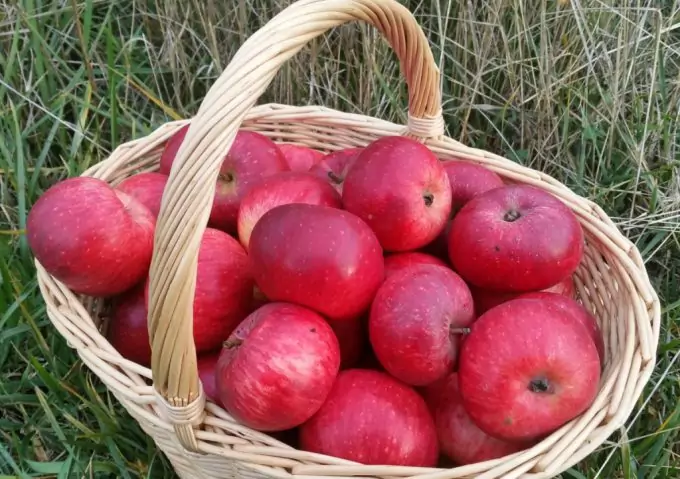
Networking – it is not as unscrupulous as it sounds. Networking, in terms of eating for free, is building a relationship with establishments who throw away left-over food. Left-overs, yes, left-overs. Now, before you react, do take note that with this method, you can be picky of what you get and it’s not always cooked food that gets left over. Some butchers would have some spare meat that only a few people want, like innards, and they can give it to you for free.
[the_ad_placement id=”in-text-2-type-r”]Please do note that only ask for a small portion, something close to one serving, asking beyond that will be too much and is a sign of you abusing their kindness. Dining establishments also feel that perfectly edible food should not be thrown away, some of these “left-overs” have not even been touched and yet these establishments are required to throw them away, either by local food regulations or by strict internal food handling rules. You can build a good relationship with them too so you can get into their good graces and get the graces that others do not want.
How to get clothing
Browse through neighborhood advertisements, especially those near community centers, as they would often hold clothing swap. You just need to make sure that the clothes you will be swapping with are clean and can still be used (no holes and tears please). Some community centers and shelters also have hand-me-down bins where people drop off clothes and shoes that are still good to use, some are even brand new.
You can just go there and choose what you want but be mindful about others too. Do not take everything you like, just choose whatever will fit your need and leave the remaining for some other people who are also looking for free clothes and shoes.
How to get shelter
Finding free shelter is quite easy but you do need the basics to know how you can find and keep them.
Into the wild – if you are fortunate enough to live close to a public forest or protected area, you can choose to go deep and find an unused cave or crevice in which you can set-up your new home. The cave or crevice should be large enough to accommodate you and your belongings and should also be able to protect you from the elements.
Be mindful of the foot traffic as well, you don’t want to come across a wandering criminal or a wandering forest ranger while you’re out there. Also check for areas that allow people to camp for free for long periods of time. Some reserves only allow campers to stay for two weeks at the most.
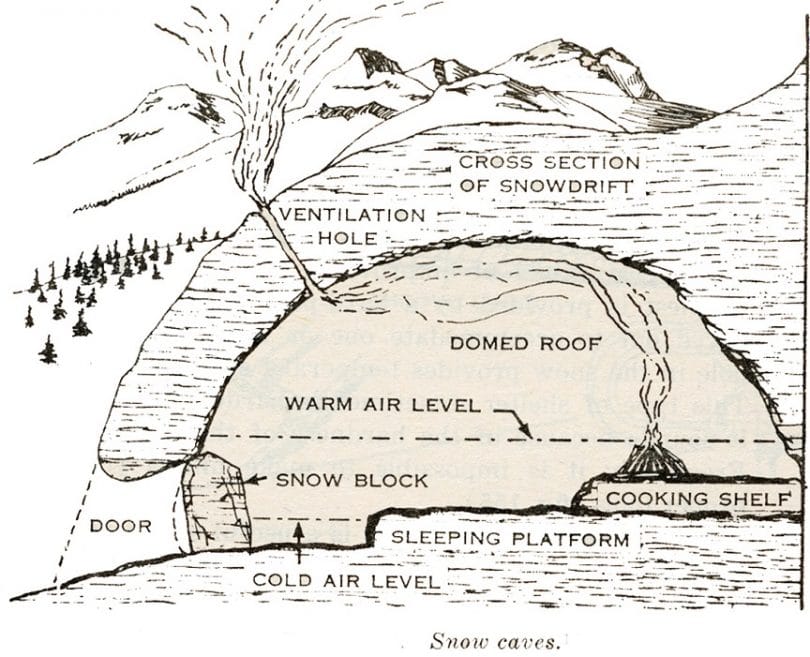
Networking – this option would probably test your relationship with your friends and relatives. While it is generally acceptable for a relative or a friend to stay with another, abusing this hospitality has dire consequences and limits your other options as well. Make sure that the person you’re going to bunk with is someone you’re in a good relationship with and knows where you are coming from and the principles you are fighting for.
Be a good guest and clean up after yourself and offer to clean their house or accommodation in return as well. This will not only build a stronger relationship but it might also bring you some extra cash for services rendered.
House sitting – there are a few towns where work is seasonal which means workers leave their homes for long periods of time to work continuously until the season ends. States like Alaska and Florida have this situation and house sitters are in demand in those locations. House sitting is like babysitting only you’re taking care of a house and its surroundings and not chasing after toddlers and kids. Reputation is the key when it comes to house sitting. You have to build a reputation of someone who can be trusted and handy when it comes to house repairs.

Knock on doors – community centers and shelters offer free shelter to those who need it but they often offer overnight accommodations only and they have strict cut-off times. Other organizations like religious houses and independent commune also offer free accommodation and you only need to participate in their activities to be able to get in. You don’t have to take the religious stuff seriously but communes sometimes offer handcrafting and technical skills that you should learn as you can use these skills in the future.
How to get furniture
You can get free furniture from house ware swaps and community center bins. But you can also make your own out of materials you can usually find near dumpsters or junkyards. You would be surprised that these materials are still serviceable and just need little mending. For some states, you can also find used furniture on the streets especially before garbage is picked up.
How to get transportation
Getting from one point to another is easy, you just need to walk and remember that one step forward means you are moving one step closer to where you want to be. But if you plan to go somewhere farther than you can walk, you can consider the following means of getting a free ride.
Hitchhike – probably the most popular form getting a free ride, hitchhiking is also a great way to meet new friends and expand your network. Sometimes you’d get lucky and get a ride from someone who will also offer you a place to stay the night and a free meal or two. The trick with hitchhiking is to assess the driver’s personality quickly, remember, you can always say no if you feel that the driver of the vehicle is up to no good. It’s not worth the few miles you’d save if you will be placing yourself in danger.
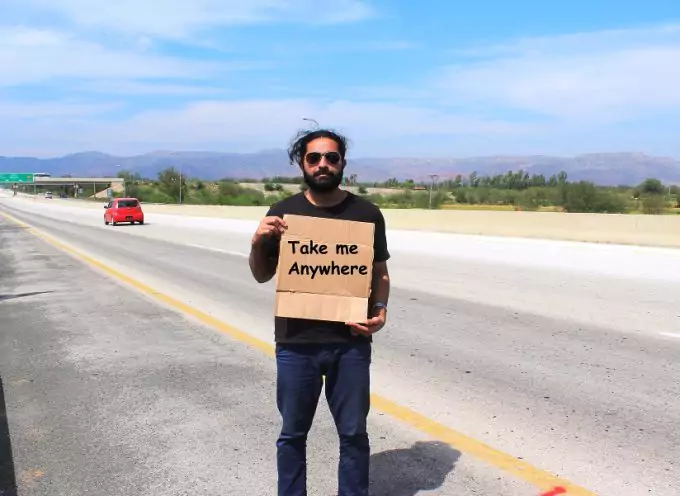
Junkyard blues – if you have been blessed with the technical knowhow and can resurrect a seemingly dead car or motorcycle then head on to a local junk shop and find a car that you are familiar with and can easily repair.
Sometimes you would have to look for a specific replacement part so it’s also important that you choose a car model that has a large population in the junk shop. Now, this can be free if you have built a good relationship with the owner or you can barter for supplies that you might have. Getting your gas is a different story though.
A story goes that one gear head went into a junkshop and bought two cars of the same model for around $80 and swapped the parts around and had both cars running using instructions he downloaded from the internet. He quickly disposed of the other car for cash and both another pair and he did the same for those two and repeated it again and again.
[the_ad_placement id=”in-text-3-type-r”]Biking – biking is a great way to go from point A to point B. It not only keeps you fit and healthy but it can also provide you a mean of transport to go places; you may not get there as fast but you would still get there in the end. If you don’t have a bike, you can always look for one in junkyards or side streets; people dispose them almost daily and some are serviceable enough.
You just need to repair one part or two and you’re good to go. If you will be travelling long distances, make sure to bring your tools with you just in case you need to make an emergency repair. It will also be good if you can bring a spare tire or two.
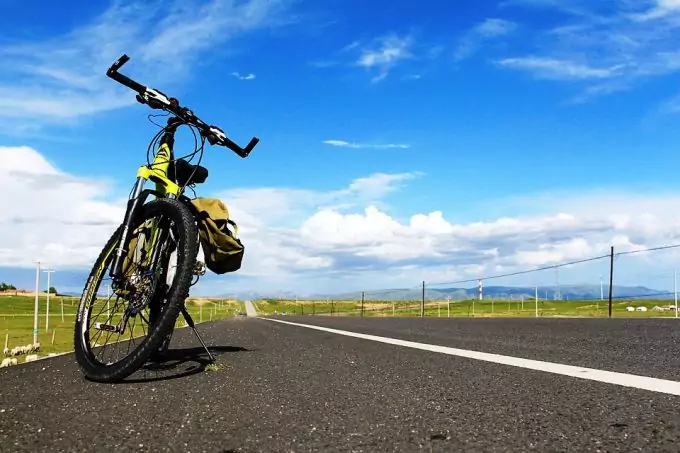
Get down with the crew – some yacht and boating clubs offer free boating lessons that you can take. You can then monitor local marina boards for boat owners who are looking for a crew. This will not only expand your experience and network but it can also bring you from one point to another, depending on the route of the boat you’re going to work on.
Are there risks?
Risks include being harassed by authorities especially if you are violating some minor law and there is the ever present risk of encountering another person who has less-than-favorable intentions towards you. Research your local area and the surrounding counties and states and see how you can live for free without getting into too much trouble.
Living for free is an ideal way to live especially if you are single. However, you might need to think very hard if you already have a family as the live-for-free lifestyle might not suit their wants.
If you want to learn more on how to be self-sustaining, check out article on how to live off the grid – it’s an amazing piece.






I think the correct term would be how to live without money. Nothing is free, and both bartering and foraging involve work, for which you get rewards.
We used to hitchhike when I was younger, and there is a lot of ways to dumpster dive too. many supermarkets throw out food when it is close to expiration date, so it is possible to get a hold of that .Just be sage and check the dates!
We appreciate your opinion, thank you Rodney.
I have faced situations in my life (teenage) when I did not have a single penny. I used to sleep on the side of the road in ugly and torn clothes, without eating in days unless some generous guy passed by and share the food with me. If I would have known all the details in this article, I would not have suffered as much. These tricks are really awesome.
Not everyone would like the idea of living out for free. However, there are a few people who would dare to do it. This article gives a pretty detailed guide on how to do it, but I would recommend going in the wild if you really want to test your wits. Although, remember, there is a difference between being an extremist and testing things out.
Thank you for showing interest in our community